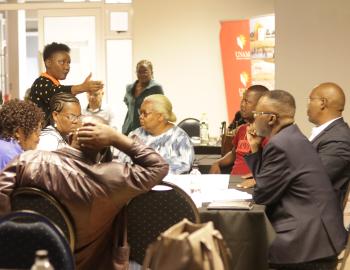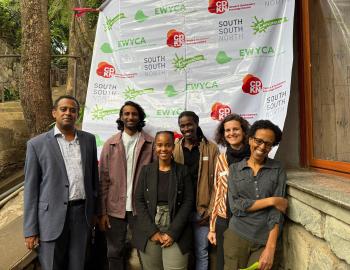Learning Story: How research and engagement influenced Uganda’s climate change adaptation landscape
Learning Story: How research and engagement influenced Uganda’s climate change adaptation landscape
This learning story forms part of the CDKN Knowledge for Change series, which reflects on the common challenges, lessons and successes CDKN and its partners have encountered in facilitating evidence-based decision-making to accelerate climate action.
The learning story shares lessons from undertaking an economic assessment study of the impacts of climate change in Uganda from 2013–2015. We document the process and strategies project actors and the Ministry of Water and Environment (as the study owner) employed to collaboratively generate and obtain buy-in for new evidence among stakeholders across various sectors; as well as to enhance the uptake and use of the research results in policy and planning activities.
Key messages emerging from the study include:
- Posing the right research questions at the right time can be catalytic for generating interest and support from government, donors and civil society for specific evidence to inform decision-making.
- Continuous engagement with key political actors and decision-makers – including senior and mid-level technocrats – is needed to build trust and obtain buy-in for new knowledge and evidence.
- In-country presence is crucial for project ownership. In Uganda, the CDKN country coordinator and study consultant had ongoing access to stakeholders, which facilitated participation from other sectors, and supported knowledge production and dissemination.
- A well-resourced communication plan with layered knowledge products packaged in varied formats for target audiences, coupled with different outreach events nationally and internationally, proved necessary to enhance knowledge uptake.
- In Uganda, providing robust evidence on the benefits of adaptation helped to elevate the importance of climate change in national government institutions and policies.
Download the learning story here.


